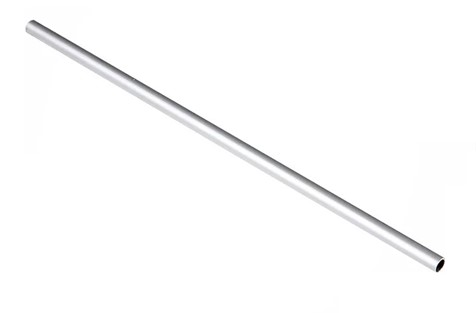Cattle Health: Key Aspects of Care and Feeding

Proper housing helps protect livestock from adverse weather conditions and ensures access to feed, as well as safe conditions for calving and animal care. For example, windbreaks in pastures or the use of natural shelters provide cattle with shelter from strong winds. Basic housing conditions also include access to feed and the ability to separate animals when necessary.
Nutrition is a critical component of cow HEALTH, affecting their growth and fertility. Pregnant cows should be provided with adequate nutrition for at least 30 days before and after calving, as this can speed up the cow's return to heat and improve the chances of successful insemination.
Furthermore, the use of ionophores can significantly improve feed efficiency and prevent various diseases. Vaccination and maintenance of newborn calves are also important for their health and immunity.
Genetics also plays an equally important role: balanced selection allows for optimal performance, ensuring long-term health and productivity of livestock. Artificial insemination helps improve the genetic quality of the herd and produce more resilient offspring.
Responsible animal care and management not only helps farmers maintain their animals' health but also ensures a stable supply of safe, high-quality beef.
Read together with it:
- Chile resumes importing meat and livestock from PatagoniaThe resolution, eagerly awaited by the livestock sector, lifts the suspension of imports of Patagonian livestock products, which was imposed at the end of July. This was announced following the completion of a technical audit conducted in Argentina by Chile's Agricultural and Livestock Service (SAG). Chile took corrective measures after the Argentine government amended its sanitary regulations, pa...
- New Products and Volume Growth. The Ministry of Agriculture and Food on the Dairy Industry Development Strategy through 2035.October 16, MINSK . Maria Klimova, Deputy HEAD of the Main Directorate for Processing Industry at the Ministry of Agriculture and Food, spoke about the key areas of the dairy industry development strategy through 2035 at the plenary session of the 11th International Forum "Dairy Belarus," BelTA reports. Klimova noted that while last year saw stagnation among the world's major dairy producers, this...
- Мировой рынок мяса птицы продолжит устойчивый ростПерспективы рынка в ближайшие кварталы выглядят благоприятно, и ожидается, что темпы роста сохранятся. Снижение цен на корма улучшает рентабельность, что способствует развитию различных регионов, включая Азию, Европу, Африку и обе Америки. Несмотря на замедление роста предложения в таких регионах, как Европа и Латинская Америка из-за нехватки родительского поголовья, азиатские страны, включая Кита...
- Beef prices in Russia continue to rise: reasons and forecastsExperts cite increased demand from major consumers such as the United States and CHINA as the main reason for this growth . This trend is also expected to impact the Russian market, with beef prices potentially rising by 12-15% in the coming months. Most Russians now view beef as a delicacy, while their everyday diet relies on more affordable pork and chicken. One of the main reasons for the curre...
- Jakarta authorities plan to ban the sale of dog and cat meat.The governor of Indonesia's capital, Pramodjo Anung Wibowo, announced plans to ban the sale of dog and cat MEAT for human consumption. The decision was announced after a meeting with representatives of the animal rights organization Dog.MEAT Free Indonesia (DMFI), writes Antara. The governor explained that this ban will be part of measures to curb the spread of rabies in the city. A special gubern...
- Emotions, care, and the three-year crisis: What influences a child's psyche, explained an expertOctober 10, MINSK . On Mental HEALTH Day, Oksana Shilova, a psychiatrist and narcologist of the highest qualification category, leading researcher at the Republican Scientific and Practical Center for Mental Health, PhD in Medicine, and Associate Professor, discussed how children's mental health develops, BELTA reports. "The mental health of different categories of people, as well as the provision...
- Tightening penalties for transporting livestock without veterinary documents in RussiaCurrently, the epizootic situation in the country is assessed as stable, however, there are threats that can destabilize this situation, including the spread of diseases such asBrucellosis , especially in regions with private farms where compliance with veterinary regulations is difficult, creates dangerous situations in which uninspected livestock can become a source of infectious diseases. The n...
- A key element of a healthy lifestyle. An expert reminded us of the importance of proper nutrition.October 7, MINSK . Snezhana Kavrigo, HEAD of the Minsk City HEALTH Center, reminded patients of the importance of proper nutrition, a BELTA correspondent reports. "I urge our patients to watch what they buy. No matter where you are, something can spoil. As a consumer myself, I constantly watch and try new things, but it's the human factor," urged Snezhana Kavrigo. She noted that this advice also a...





























































